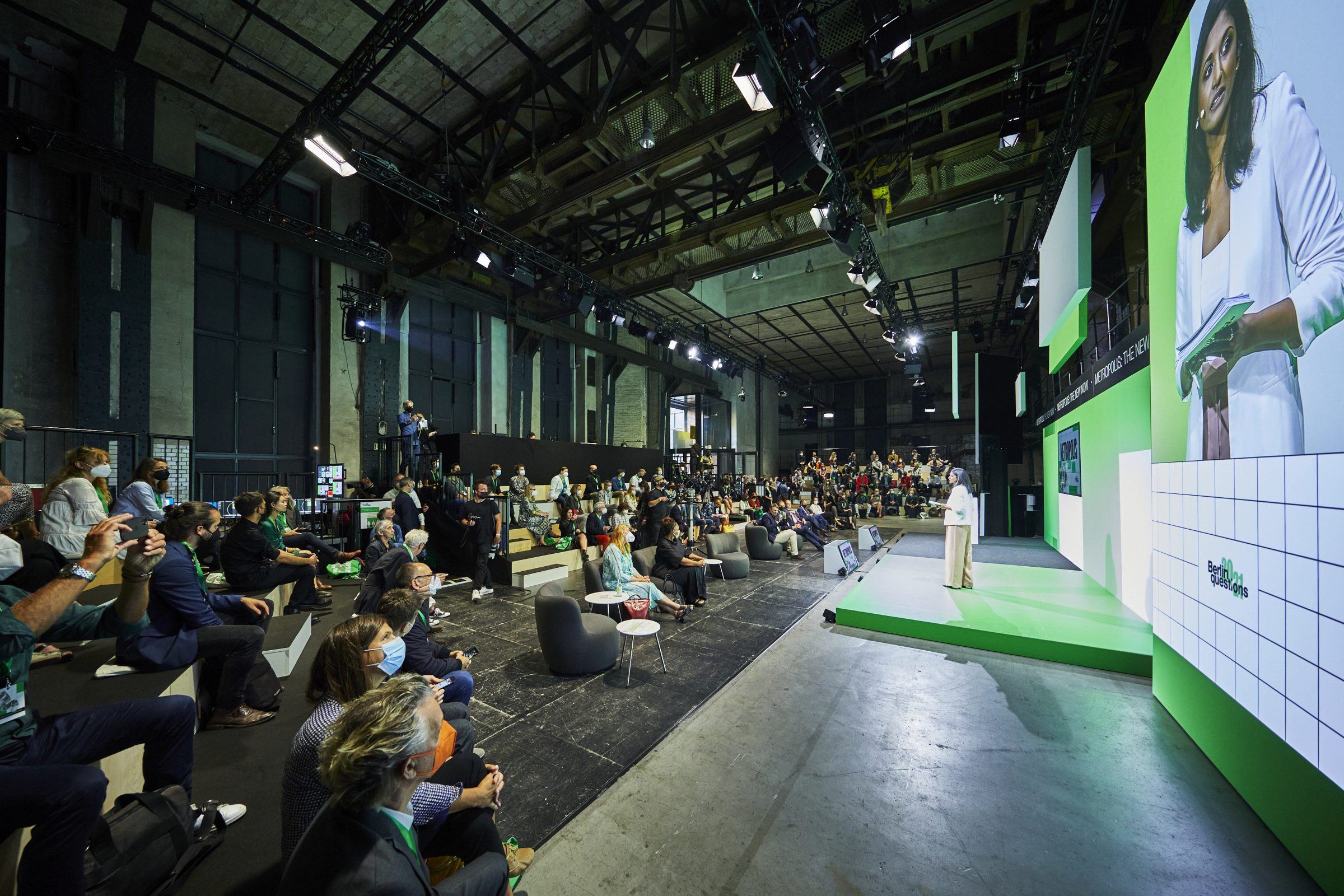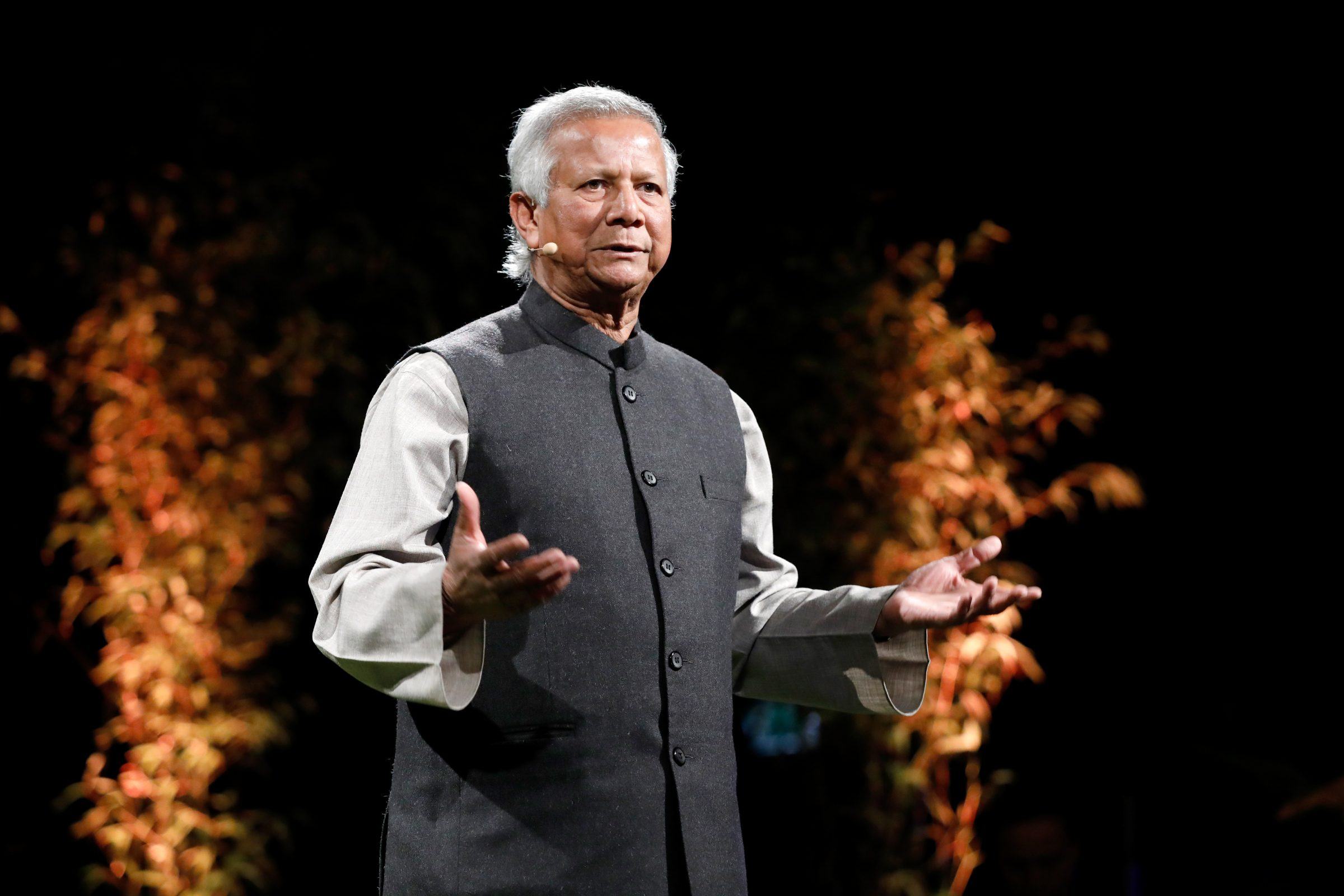Video Archive
What is the fair balance between individual and collective interests?
Vicente Fox
An appeal against sexual violence and human rights violations
Nadia Murad
What do we do when there is nothing left to do?
Muhammad Yunus
Urban Angst and Stamina. What are the promising concepts to handle the rise and fall of the cities?
Rem Koolhaas
Imagine yourself as the other self. How do we embrace tolerance and difference?
Cao Fei
What is the fair balance between individual and collective interests?
Melanie Rieback
Revolutionary revelations in climate studies
Dr. Friederike Otto
What is the moral balance between innovation and human interests?
Juan Enriquez
Culture and AI - Creatives can never be replaced by AI - or can they?
Florian Illies
The Fight against Plastic Waste
Eugenia Chow
A humane world of work - in the age of intelligent machines
Dr. Max Neufeind
The Quest for Stability and Dignity in Society
Heather Brown
Sustainability as a principle of city planning
Jeffrey Inaba
Women’s empowerment through volunteer work
Suhani Jalota
Where is the ethical line in the development and use of AI?
Thomas Metzinger
Stress and the City: Why cities drive us crazy – and how to make them liveable
Mazda Adli
Revolt against liberal democracy in Europe – Where do populist right-wing movements come from?
Goran Buldioski
How quickly does the world have to change? A worst-case scenario of climate change and proposed solutions
Nathaniel Rich
Beyond big men, big empires and borders – African women reclaiming their voice and reimagining the future
Rosebell Kagumire
What is the moral balance between innovation and human interests?
Nighat Dad
What is the personal balance between thinking differently and mutual understanding?
Chad Sanders
What is the moral balance between innovation and human interests?
Bruce Sterling
Q BERLIN 2021
Berlin questions 2021 – Metropolis: The New Now, was dedicated to local solutions to global challenges, with a special focus on the future of the city after the Covid-19 pandemic. Hosted by the Governing Mayor of Berlin, the conference took place in a hybrid format for the first time: both in person at six locations in Berlin and online, via livestream and in the 3D virtual environment The Virtual Now.

Sumi Somaskanda
Q BERLIN 2019
„We need sheltered spaces to exchange ideas freely and impartially. Berlin questions is such a space“. It was with these words that BBC presenter Tristana Moore opened the third Berlin questions Conference on 7 November 2019 at Station Berlin. For two days, 15 national and international experts discussed the big questions of our time together with some 800 guests. Topics included climate protection, civil responsibility, artificial intelligence, new work and urban life. An emotional highlight was the moving keynote speech by Nobel Peace Prize Laureate Nadia Murad who spoke of the fate of her people, the Yazidi, under the „Islamic State“.
„The positive response to Berlin questions 2019 has been overwhelming and very encouraging. The conference format we employed to inspire interested people about the urgent questions of the time has clearly won them over.“ said Burkhard Kieker, Managing Director of visitBerlin.
At Berlin questions 2019, the top-class panel of experts included, among others, the Berlin stress researcher Dr. Mazda Adli, who spoke about the effects of life in the big city on the mental health of its inhabitants. Dr. Friederike Otto, Director of the Environmental Change Institute at Oxford University, presented alarming findings on climate change. Florian Illies, best-selling author and Rowohlt publisher, raised the question of whether creativity can be replaced by artificial intelligence. The so-called Q Immersions led the participants on the second day of the conference to special places, companies and institutions around the city to deepen the topics of the conference in talks, exhibitions and workshops.

Berlin questions 2019, Photo: Kevin McElvaney

